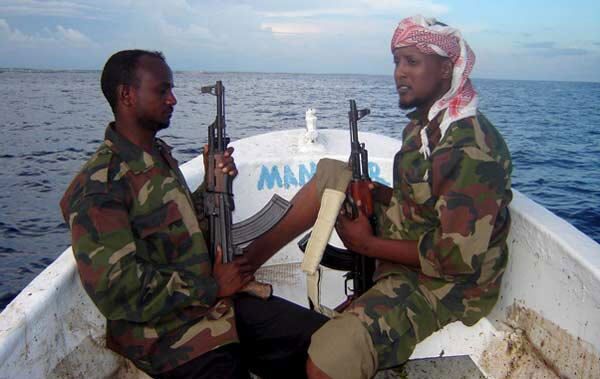MOSCOW. (RIA Novosti military commentator Ilya Kramnik) - Pirates near the Somali coast and several other African countries are possibly one of the key news items these days.
However, piracy is only the tip of the African iceberg: The developments in Africa, which affect all states in the region, including Somalia, are fraught with a far more serious threat than piracy.
The United States has recently expressed concern over this threat once again. During his visit to Algeria, U.S. Assistant Secretary of State for Near Eastern Affairs Jeffrey D. Feltman said that Washington is concerned over the problem of terrorism in the Sahel countries (one of the poorest regions in the world, the Sahel Belt includes Senegal, Mauritania, Mali, Burkina Faso, Niger, Nigeria, Chad, Sudan, and Eritrea).
Feltman noted that the U.S. is not going to substitute for African governments in their efforts to counter terrorism in the region, although it can provide them assistance.
Terrorist activity in the region started to surge after Al-Qaeda "branches" popped up in Africa. In January 2007, Al-Qaeda in the Islamic Maghreb (AQIM) announced its existence, launching terrorist attacks against African countries' government agencies and armed forces, including the Algerian army, as well as against representatives of other countries, including Russia.
In March 2007, a bus with employees of the Russian company Stroytransgaz was blown up in Algeria. Four people were killed in this terrorist attack, including one Russian, with five people injured, including one Russian and one Ukrainian. In its communique, AQIM claimed that ten unrighteous Russians were killed and injured in that attack, which the terrorists dedicated to their Muslim brethren in Chechnya.
AQIM did not confine itself to the Maghreb, with its militants launching raids in the southern regions (Sahel countries) and in the east, specifically Sudan and Somalia, which offer perfect soil for terrorist activity. Radical Islamist groupings are becoming more influential in Somalia, stricken by a long-standing civil war. One of the most powerful groupings is Al-Shabaab, which has ties with Al-Qaeda and controls most of the country. On October 19, 2009 Al-Shabaab militants shot down an unmanned American aircraft over the port of Kismayo.
Al-Shabaab terrorizes other African states too, threatening to commit terrorist attacks in the capitals of Uganda and Burundi, whose soldiers participate in the peacekeeping mission supporting the internationally recognized Somali government in Mogadishu. During recent clashes with Islamists, peacekeepers launched a missile attack against one of the districts in Mogadishu, which resulted in victims among civilian population and prompted terrorist threats against these African countries. Earlier, Al-Shabaab militants waged a guerilla war against Ethiopian forces, who also supported the officially recognized government in Somalia.
The complete inability of the official Somali government to strengthen its power in the country gives rise to the popularity of Islamist groupings. Poverty and starvation, caused by the crippled economy, ensure an inflow of new disciples to Islamist organizations.
The situation in Sahel countries, which can hardly be called prosperous, is developing according to a similar scenario. On the other hand, the governments in these countries are relatively strong and can more or less effectively counter terrorists, if assisted internationally.
The U.S. provides such support to Mali, which has recently received $5 million from the U.S. in financial aid to purchase military vehicles and communications devices.
However, such aid, along with weapon supplies to the official Somali government cannot rectify the situation. More to the point, this support, lacking in efficiency, only exacerbates locals' negative attitude toward international governments, which casts doubt on the global community's ability to stabilize the situation in Somalia and other problem-ridden countries.
Obviously, a real war on terror is only possible if African economies develop, which will deprive terrorism of its breeding ground. However, it is not a realistic solution for Somalia: Economic aid can be provided to a more or less stable country, not a territory stricken by a civil war, where humanitarian convoys with food and medicines are regularly attacked.
A comprehensive peacekeeping operation in Somalia will require 25,000-30,000 soldiers with heavy arms and strong air force support, ready for heavy fighting. The U.S. and its allies are unable to carry out such an operation since settling other conflicts takes too much effort. No other government is able to take on such a responsibility.
It is unclear how the situation will develop, but it appears that in the media, the pirates near the African coast can be replaced by local terrorists only.
The opinions expressed in this article are the author's and do not necessarily represent those of RIA Novosti.

